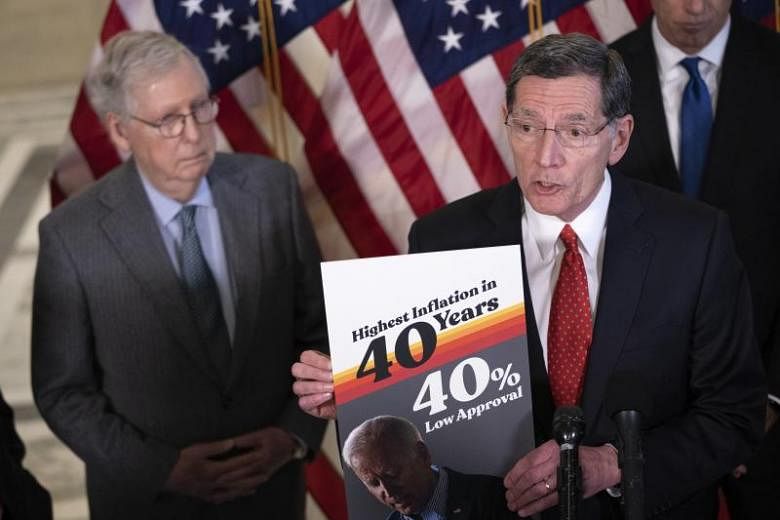After years of mostly stable prices, companies in Singapore are now feeling the burn of inflation. As energy costs soar, some small- and medium-sized enterprises are being hit by electricity bills three to five times what they paid last year. Rates for sea freight have doubled from a year ago.
With the costs of key inputs such as energy and metals likely to remain elevated and supply chains yet to normalise, things might get worse before they get better, says associate editor Vikram Khanna in his commentary.
What happens next? A lot depends on how central banks respond, particularly the US Federal Reserve. The Fed will likely have to tighten monetary policy more aggressively than it wanted or expected to at the end of last year.
But the hawks and doves are divided on how far the Fed can, or will, go. On the hawkish side are a minority of economists who believe that inflation is here to stay well into 2024 and maybe beyond. Most economists, including those at central banks, are more optimistic about the outlook for inflation.
Mr Khanna's verdict? Even in the most hawkish scenario where the Fed funds rate goes to 2.5 per cent some time next year, interest rates will still be negative in real terms, unless consumer price inflation crashes by around 5 percentage points by that time and core inflation gets cut in half. This is highly unlikely.
"So, while monetary policy will tighten into next year, it will still remain loose," he says. "And the financial markets might go through hell this year, but they will come back."
Integrity must form bedrock of politics in Singapore
Public opinion remains divided over the Raeesah Khan saga, and the Committee of Privileges and Workers' Party leaders have put forth many arguments and counter-arguments over the matter.
But the broader issue, said Prime Minister Lee Hsien Loong in his speech in Parliament on Tuesday (Feb 15), is how democracy should work in Singapore - including the institutions, norms and values that are essential for the system to function properly.
This means telling the truth and doing the right thing by Singapore even when it is hard or awkward. If something wrong has been done, parliamentarians should own up and take responsibility instead of further obfuscating the original lie.
Mr Lee added that the right norms can only be upheld by people with the right values, because norms are not merely social conventions but are expressions of internal values that people believe in and hold dear.
"MPs must be people with integrity at their core, who speak and act in an upright manner, always putting duty before self, and country before party. And our highest duty - our ultimate loyalty - is not to our party, but to Singapore," he said.
"That is why when taking office, MPs swear 'to bear true faith and allegiance to the Republic of Singapore'. In fact, this applies to everyone engaged in Singapore politics, MP or not."
And as observed in this editorial, the slippery slope to a decline in the quality of governance - and the public's respect for politicians - is a short one. It would not have been right for the House to dismiss the seriousness of Ms Khan's lie and the WP leaders' response to it. As for the WP's Pritam Singh and Faisal Manap, referring them to the courts will allow their side of the story to be fully tested.
Elsewhere in Opinion
- Slower growth and higher inflation will be the hallmarks of a post-Covid-19 world.
- What does it mean to be Chinese when your freestyle skiing champion was born and groomed in the sport overseas?
- The latest Sino-Russian document outlines a future vision of the world as seen from Moscow and Beijing.
- The Singapore Airshow is back.


